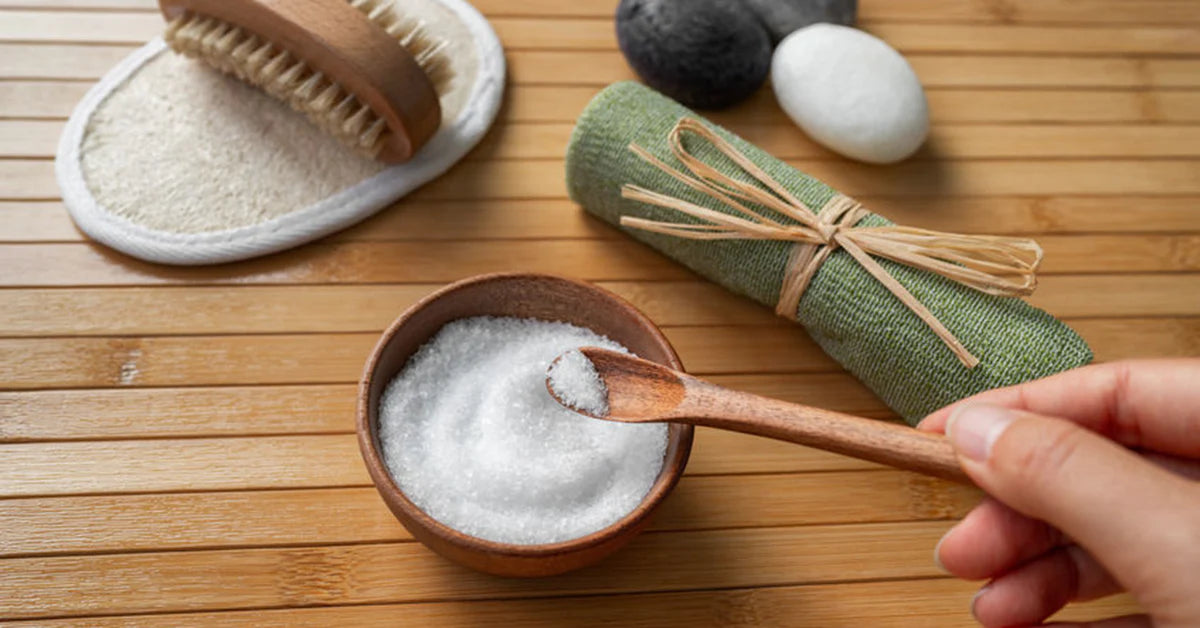
Introduction to Magnesium Sulfate and Stiff Muscles: A Dynamic Duo for Relief
Muscle soreness, also known as delayed onset muscle soreness (DOMS), typically occurs after engaging in strenuous physical activity or exercise that your body isn't accustomed to. DOMS usually manifests as pain, stiffness, and tenderness in the affected muscles, peaking around 24 to 72 hours after exercise.
Several factors contribute to the development of muscle soreness:
Muscle Microtrauma
Intense or unfamiliar exercise can cause microscopic damage to muscle fibers, leading to inflammation and soreness as the body repairs and rebuilds these tissues.
Lactic Acid Buildup
Contrary to popular belief, lactic acid buildup during exercise is not the primary cause of muscle soreness. However, it can contribute to the sensation of fatigue during exercise. After exercise, lactic acid is cleared from the muscles relatively quickly.
Inflammatory Response
Exercise-induced muscle damage triggers an inflammatory response as the body works to repair and remodel the affected tissues. Inflammation can contribute to the pain and discomfort associated with muscle soreness.
Fluid and Electrolyte Imbalance
Dehydration and electrolyte imbalances, such as low levels of potassium and magnesium, can exacerbate muscle soreness and cramping.
Bathing in Epsom salt baths, which contain magnesium sulfate, is a popular remedy for relieving muscle soreness and promoting recovery. While the exact mechanism of how Epsom salt baths alleviate muscle soreness is not fully understood, several potential benefits have been proposed:
Magnesium Absorption
The skin can absorb magnesium from Epsom salt baths, leading to increased magnesium levels in the body. Magnesium plays a crucial role in muscle function and relaxation. Higher magnesium levels may help relax muscles, reduce muscle tension, and alleviate soreness.
Anti-inflammatory Effects
Magnesium sulfate has been reported to exhibit anti-inflammatory properties. By reducing inflammation, Epsom salt baths may help alleviate muscle soreness and promote faster recovery.
Pain Relief
Magnesium sulfate may act as a natural pain reliever. It is believed to inhibit pain receptors in the brain, reducing the perception of muscle soreness and discomfort.
Improved Circulation
Soaking in warm water, such as in an Epsom salt bath, can improve blood circulation. Better circulation can help deliver oxygen and nutrients to sore muscles while removing waste products, promoting faster recovery.
Stress Reduction
Epsom salt baths are often used for relaxation and stress relief. Stress can exacerbate muscle soreness and delay recovery. By promoting relaxation and reducing stress levels, Epsom salt baths may indirectly help alleviate muscle soreness.
While many people report experiencing relief from muscle soreness after using Epsom salt baths, scientific evidence supporting its effectiveness is limited. More research is needed to fully understand the mechanisms and benefits of Epsom salt baths for muscle soreness.
Additionally, individual responses may vary, and Epsom salt baths should not be considered a substitute for proper rest, hydration, and post-exercise recovery strategies.
Try epsolution™ today!



Leave a comment
This site is protected by hCaptcha and the hCaptcha Privacy Policy and Terms of Service apply.